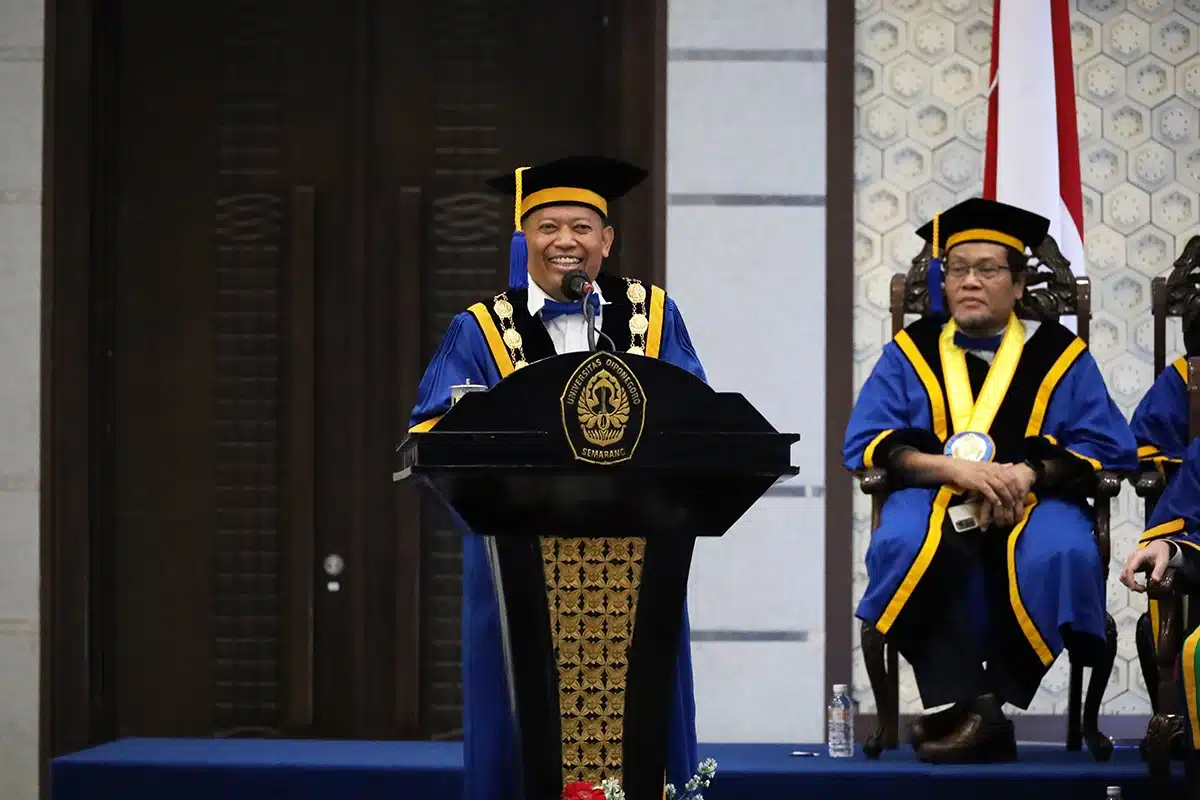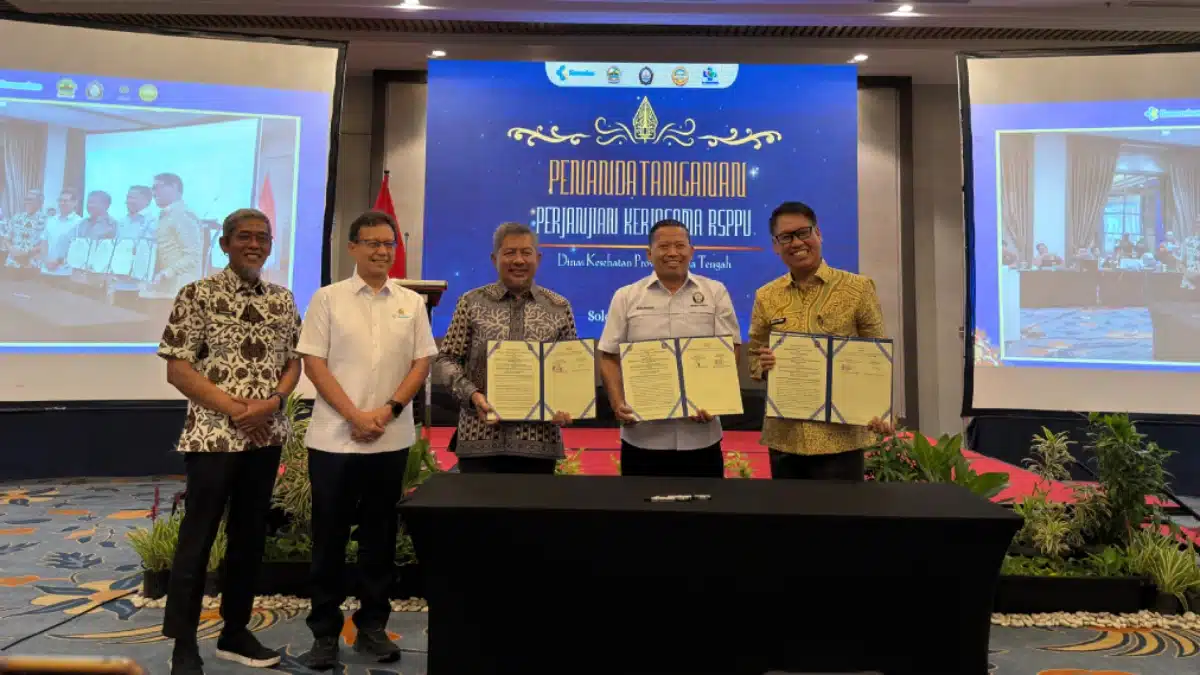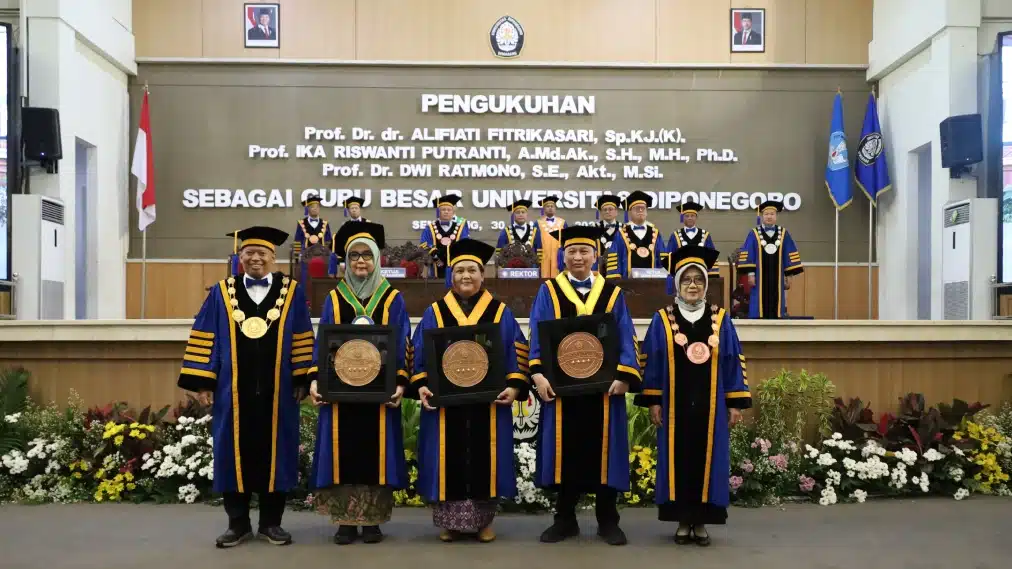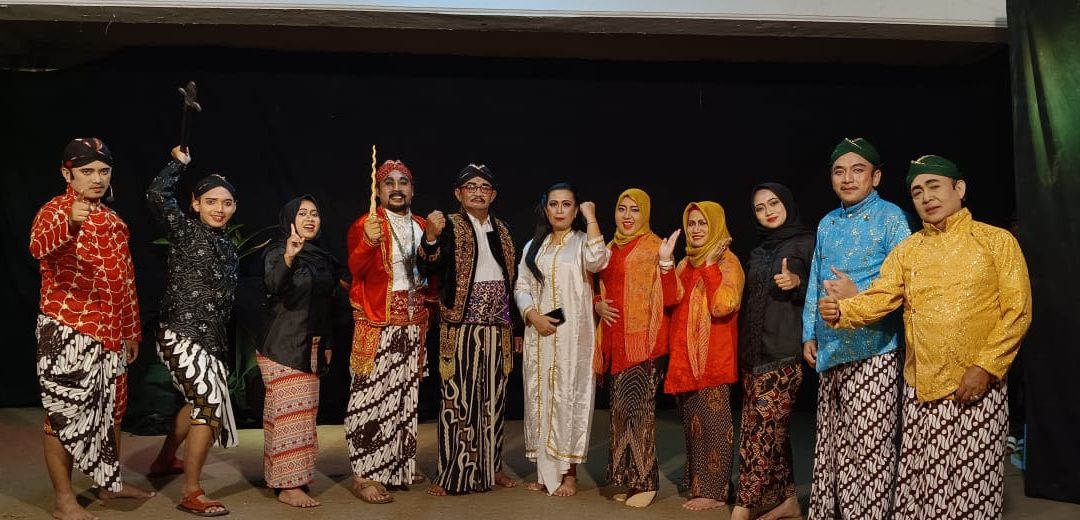The Kethoprak Balekambang group has been active in Surakarta for a long time preserving the oral tradition with traditional performances. On December 17, 2022 Ketoprak Balekambang collaborated with academics from the Indonesian Literature Study Program Diponegoro University. With the intention of continuing good friendship in the world of art, culture, and cultural education, the performance entitled Penangsang Gugur was done collaboratively.
This performance takes the traditional values that already exist in the process of the birth of the Nusantara. One of the important values in the implementation of this staging is the movement of the director from act to act, eliminating text as a guide used by the characters. Kethoprak as a form of oral tradition is not much different from Ludruk in which the text is the logic of the players themselves. The director only provides an outline of the concept that the players set forth in free dialogue. It is done with an important condition that the free dialogue should not get out of the groove.
Applying this, the performance entitled Penangsang Gugur intends to retell the story of Haryo Penangsang in the history of the existing canon. Haryo Penangsang is known as a leader who supports coastal areas with an iron fist. However, not many people know that there are hidden sides to Haryo Penangsang’s leadership that can be compared to the concept of Wali Mansur. Wali Mansur is usually known as a leader who often makes short, authoritarian decisions, and gives the impression of making people miserable, even though this actually triggers reciprocity, either in a positive or negative form. This reciprocity is related to whatever is the policy. This is confirmed by Haryo Penangsang’s close relationship with Sunan Kudus.
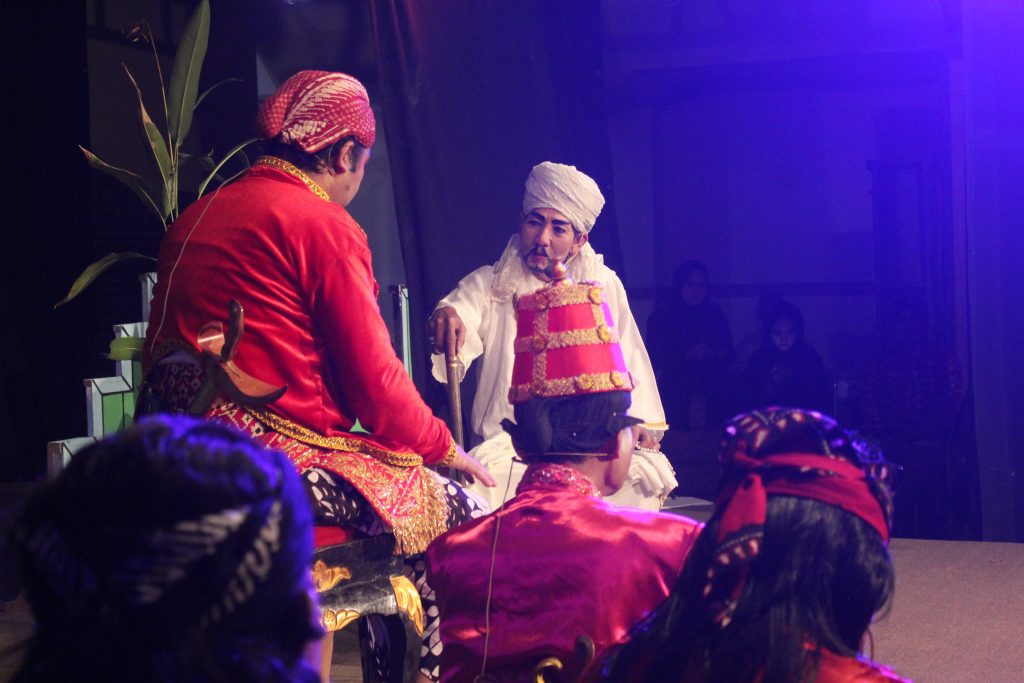
Being the antithesis of Haryo Penangsang, there was a disciple of Sunan Kudus who was also the king of Pajang named Hadi Wijaya. This king has the ambition to defeat Haryo Panangsang. As the antithesis, he also clothed himself with meek, yet cunning souls resided within him and his dukes. So that made him full of doubts, whether he could do it.
As the basic moral of an antithesis, when it is resisted it will fight. Unfortunately, Hadi Wijaya, who is already old, had to find another character to end Haryo Penangsang’s history. A competition was held, but none of the knights were suitable and considered capable of killing Haryo Panangsang. Suddenly Pemanahan appointed Danang Suto Wijoyo and Wasis, Hadiwijaya’s two sons, to continue his father’s ambitions. Even though he was scared, Danang Sutowijoyo was able to stab a large spear into Haryo Panangsang’s stomach which made one of the officials of the Java coastal region droop and fall.
The performance of Kethoprak Balekambang with academics from the Indonesian Literature Study Program Undip romanticizes tragedy in Javanese stories. This is also a method to touch the oral tradition directly. The performance itself has been watched by the audiences offline at Graha Wisata Niaga and online via the BALKAM TV YouTube channel. Head of Indonesian Literature Study Program, Dr. Sukarjo Waluyo, M.Hum., saw this performance as a way to bring academics closer to cultural objects that are still alive. One of the objects highlighted here is oral tradition. Responding to this, Ketoprak Balekambang also hoped that academics from Undip will continue to attend and liven up kethoprak performances in various domains. (Hamdan)
-source: sastraindonesia.fib.undip.ac.id


